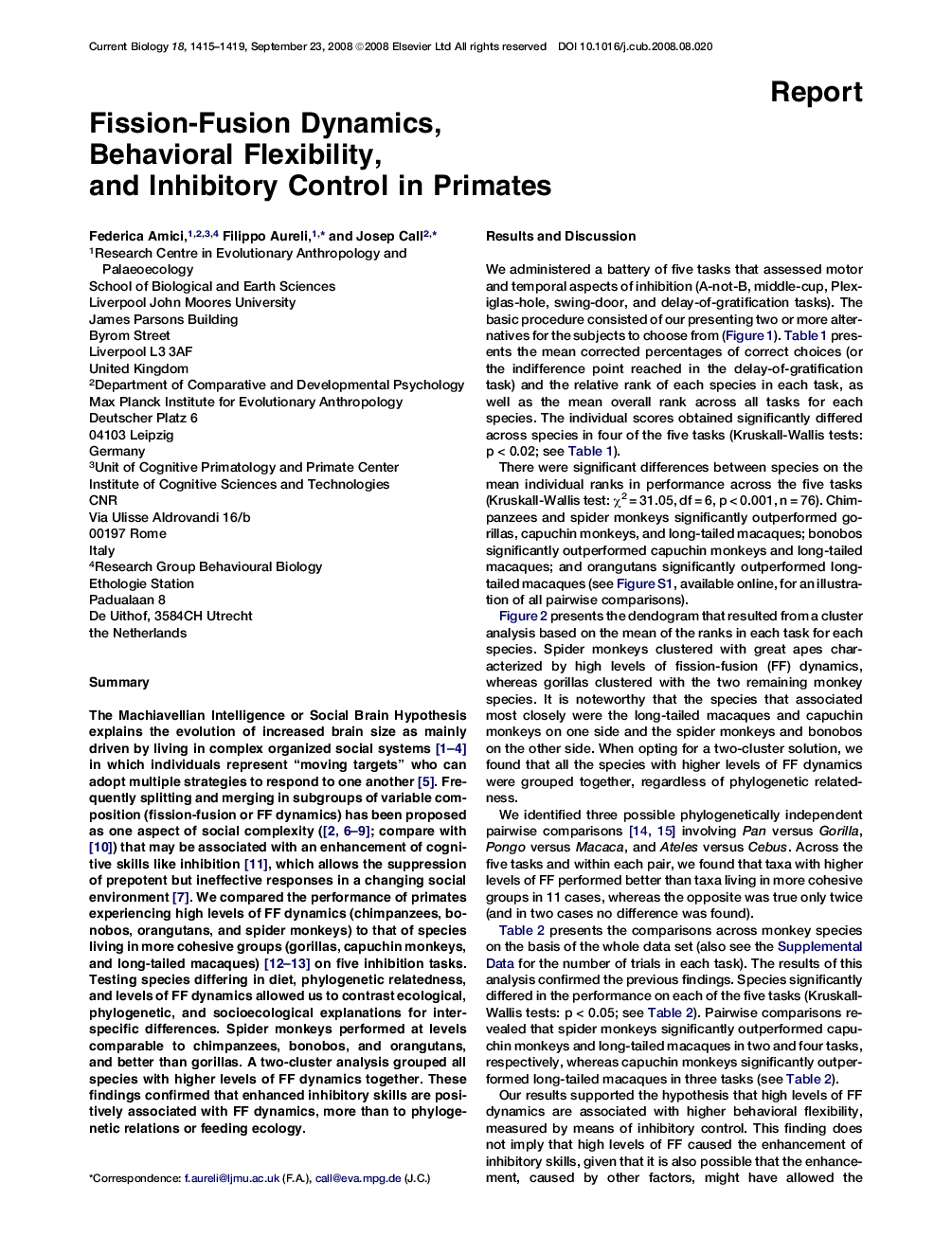| کد مقاله | کد نشریه | سال انتشار | مقاله انگلیسی | نسخه تمام متن |
|---|---|---|---|---|
| 2043955 | 1073383 | 2008 | 5 صفحه PDF | دانلود رایگان |

SummaryThe Machiavellian Intelligence or Social Brain Hypothesis explains the evolution of increased brain size as mainly driven by living in complex organized social systems 1, 2, 3 and 4 in which individuals represent “moving targets” who can adopt multiple strategies to respond to one another [5]. Frequently splitting and merging in subgroups of variable composition (fission-fusion or FF dynamics) has been proposed as one aspect of social complexity (2, 6, 7, 8 and 9; compare with [10]) that may be associated with an enhancement of cognitive skills like inhibition [11], which allows the suppression of prepotent but ineffective responses in a changing social environment [7]. We compared the performance of primates experiencing high levels of FF dynamics (chimpanzees, bonobos, orangutans, and spider monkeys) to that of species living in more cohesive groups (gorillas, capuchin monkeys, and long-tailed macaques) 12 and 13 on five inhibition tasks. Testing species differing in diet, phylogenetic relatedness, and levels of FF dynamics allowed us to contrast ecological, phylogenetic, and socioecological explanations for interspecific differences. Spider monkeys performed at levels comparable to chimpanzees, bonobos, and orangutans, and better than gorillas. A two-cluster analysis grouped all species with higher levels of FF dynamics together. These findings confirmed that enhanced inhibitory skills are positively associated with FF dynamics, more than to phylogenetic relations or feeding ecology.
Journal: - Volume 18, Issue 18, 23 September 2008, Pages 1415–1419